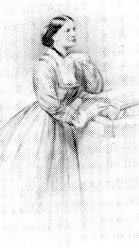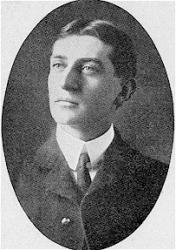
1812 - 1899 Hymnal Number: 578 Author of "I Thank the Lord My Maker" in Church Hymnal, Mennonite Mackellar, Thomas, was born in New York, Aug. 12, 1812. At the age of 14 he entered the printing establishment of Harper Brothers. In 1833 he removed to Philadelphia and joined the type-foundry firm of Johnson & Smith, as proof reader. He subsequently became a foreman, and then a partner in that firm, which has been known from 1860 as Mackellar, Smiths, and Jordan, type-founders of Philadelphia. His publications include The American Printer, 1866, a prose work, and the following in verse:—
(1) Droppings from the Heart, 1844; (2) Tam's Fortnight Ramble, 1847; (3) Lines for the Gentle and Loving, 1853; (4) Rhymes Atween Times, 1872. The last contains some of his hymns. (5) Hymns and a few Metrical Psalms, Phila. 1883 (71 hymns, 3 psalms), 2nd edition, 1887 (84 hymns, 3 psalms).
Those of his hymns in common use include :—
1. At the door of mercy sighing. Lent. Published in his Rhymes Atween Times, 1872, as, "Long of restful peace forsaken," and again in Dr. Hitchcock's Hymns & Songs of Praise, 1874, as "At the door of mercy sighing."
2. Bear the burden of the present. Resignation. Written in 1852, and published in his Lines for the Gentle and Loving, 1853; and Lyra Sacra Americana, 1868. Part of this hymn, beginning "All unseen the Master walketh," was in common use in Great Britain.
3. Book of grace, and book of glory. Holy Scripture. Written in 1843. It was given in the Sunday School Union Collection, 1860, and his Hymns and a few M. Psalms, &c, 1883, and a few collections, including Allon's Children's Worship, 1878, &c.
4. Draw nigh to the Holy. Jesus, the soul’s Refuge. In Sumner's Songs of Zion, 1851, and the Lyra Sacra Americana, 1868, in 5 st. of 8 1ines.
5. Father, in my life's young morning. A Child's Prayer. Written in 1841.
6. In the vineyard of our Father. Work for God. Written in 1845. It was given in the Hymns for Church & Home, Philadelphia, I860, and other collections.
7. Jesus! when my soul is parting. Continued presence of Jesus desired. Written in 1848, and included in Lyra Sacra Americana, 1868, in 4 stanzas of 6 lines, and entitled "Jesus first and last."
8. There is a land immortal. Heaven. Mr. Mackellar says that this hymn was written
"One evening as a fancy suddenly struck me of a religious nature, I laid aside the work in hand, and pursuing the new idea, I at once produced the hymn, ‘There is a land immortal,' and sent it to the editor [of Neale's Gazette], who referred to it as a religious poem from ‘Tam,' my assumed name, under which I had already acquired considerable notoriety. This was in 1845. It was widely copied, and afterwards inserted in a volume published by me." Duffield's English Hymns, &c, 1886, p. 551.
Mr. Mackellar was an Elder of the Presbyterian Church. [Rev. F. M. Bird, M.A.]
-- John Julian, Dictionary of Hymnology (1907)
======================
Mackellar, T., p. 708, ii. Additional hymns are:— (1) "I have no hiding-place" (Safety in Jesus), (2) “I will extol Thee every day" (Praise to God). These are dated 1880 and 1871 respectively in Stryker's Church Songs, N. Y., 1889. He died Dec. 29, 1899.
--John Julian, Dictionary of Hymnology, Appendix, Part II (1907)
============
Mackellar, T., pp. 708, ii.; 1578, ii. He died Dec. 29, 1899. His hymn, “O the darkness, O the sorrow" (Redemption through Christ), was written in 1886, and added to the latest 1668 editions of his Hymns & Metrical Psalms. It is found in Summa Corda, 1898, and several other collections. His Hymns and Poems were collected and published in 1900. [Rev. L. F. Benson, D.D.]
--John Julian, Dictionary of Hymnology, New Supplement (1907)
Thomas MacKellar


 My Starred Hymns
My Starred Hymns









